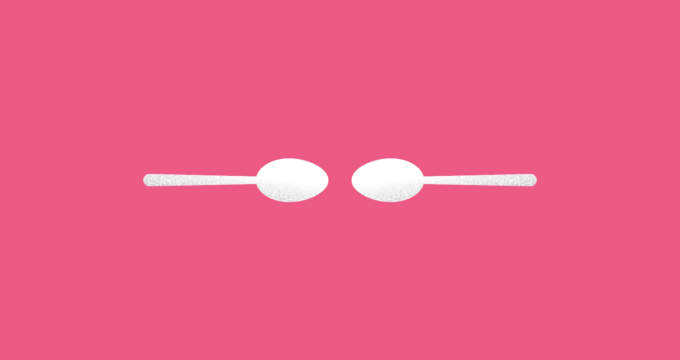How to sleep better: tips for a good night’s sleep
Wellbeing
Sleep is at the core at what we’re able to achieve throughout our days.
Our sleep is regulated by our internal body clock, or circadian rhythm, which is the internal process that regulates our sleep and awake time. It repeats roughly every 24 hours and is key when it comes to having a good night’s sleep.
If you struggle with your sleep or if you are keen to improve your sleep quality, then there are a few key aspects you need to consider:
Stick to your sleeping schedule
1. Make time for sleep
As you do for any other activity, you actually need to make proper time for sleep too. Treat your sleeping time like a fixed appointment in your calendar that you can’t miss. This will help you to schedule your other activities around it without compromising on your time for sleep.
2. Have consistent sleep and wake times
In order to develop a good sleeping habit, it’s important to stick to a somewhat fixed schedule so that your internal body clock can get used to it. Make sure that you always go to bed and wake up around the same time.
3. Be mindful about napping
Napping can be a great way to recharge your energy during the day. However, you need to be careful and make sure that you nap the right amount of time and not close to your bedtime. Naps are best taken in the early afternoon when your energy is naturally low.
4. Don’t sleep in on the weekends
If you sleep in two days out of seven, then it will be difficult to get into a good sleeping rhythm. Avoid sleeping in and keep your sleeping times consistent also on weekends.
Optimize your day for sleep
5. Eat a healthy and abundant breakfast
A good and healthy breakfast is important to start the day with the right energy. It will also affect your internal body clock, signaling that the day has started. In return, your body will know when it’s about time to go to bed.
6. Get as much daylight exposure as possible
Being exposed to enough daylight is another important factor to develop a healthy sleep pattern. Daylight helps to calibrate your internal clock and a lack of daylight exposure is often linked to insomnia. Go outside as much as possible during daylight hours. If that is not possible, then make sure that your home and office have appropriate daylight lighting during the day.
7. Stay physically active during the day
Getting your daily dose of exercise will help you to improve your sleep quality, as it will help you to fall asleep more quickly and to sleep more profoundly and longer. A good night’s sleep will in return help you to have more energy to exercise, so the two things go hand in hand.
8. Don’t give in to sleepiness during the day
If you feel sleepy but it’s way too early for your bedtime, then get up and move. Do something that engages your mind or body. If you give in to your sleepiness, it might get harder later to fall asleep or you may easily wake up during the night.
Set a cozy environment
9. Sleep in a dark room
It doesn’t have to be completely dark but make sure that your bedroom is dark enough to help you fall asleep. Likewise, make sure that no light source can disrupt your sleep during the night.
10. Shield yourself from any unwanted background noise
Have your bedroom situated in the quietest room and invest in soundproof equipment as well as good sound shielding windows. If you can’t fully eliminate outside noises or if you easily wake up when there is a sudden noise, you can use a background sound generator such as Noisli. Noisli will help to mask any unwanted outside noise by creating a pleasing sound environment to help you relax and fall asleep.
11. Set the right temperature
It’s difficult to sleep when it is too hot. The ideal bedroom temperature should be around 18°C (64°F).
12. Use sleep stimulating scents
Having a relaxing scent fill your bedroom can help you to relax and fall asleep more easily. A scent such as lavender is ideal to help you relax and has been proven to help with insomnia.
13. Keep your bedroom tidy
A cluttered bedroom can negatively influence your state of mind. The visual caos can prevent you from relaxing and falling asleep. Keep your bedroom tidy and simple.
14. Invest in a comfortable bed
A comfortable bed, pillow and mattress are essential for a quality sleep. Investing in a good and comfortable mattress and pillow will be worth the money. Further, make sure to frequently change your bedding and pajamas (approx. once a week) as sleeping in fresh sheets is also key to have a good night’s sleep.
15. Use your bed for sleeping
Don’t eat, watch tv or work in your bed. If you start associating those activities with your bed, your mind will have more difficulty associating your bed with relaxation and sleep.
Establish a healthy bedtime routine
16. Reduce blue light exposure
Slowly dim the lights in the evening and reduce any blue light exposure 1-2 hours before going to bed. If you like to read before bedtime you can opt for physical books or devices which are not backlit.
17. Have a relaxing bath or shower
Having a relaxing bath or shower in the evening can help you destress from your day.
18. Clear your mind from worry and clutter
It’s difficult to fall asleep if you’re worried about something or are constantly thinking about a specific thing. In such cases it is best to write it down so as to get it out of your head. This could be simply writing down your feelings, an idea or a to-do list to get back to the next day.
19. Eat and drink mindfully
Don’t consume any alcohol or caffeine before bedtime. Don’t eat a heavy meal (especially fatty or spicy food) 2-3 hours before your bedtime. If you feel hungry then don’t go to bed with an empty stomach but opt for a healthy and light snack. Also make sure to not drink a lot before bedtime as this may wake you up multiple times during the night to use the bathroom and disrupt your sleep.
If you still can’t fall asleep
20. Don’t stew in bed
If you still have trouble falling asleep or wake up in the middle of the night and can’t get back to sleep, then it’s simply best to get out of bed. Don’t stew in bed but get up, take a few steps and then try to go back to bed again. You can also do some relaxing stretches or read a few pages from a book. Just remember to keep lights dimmed and to not use any blue light devices in the meanwhile so to not enter into a wake up phase.



